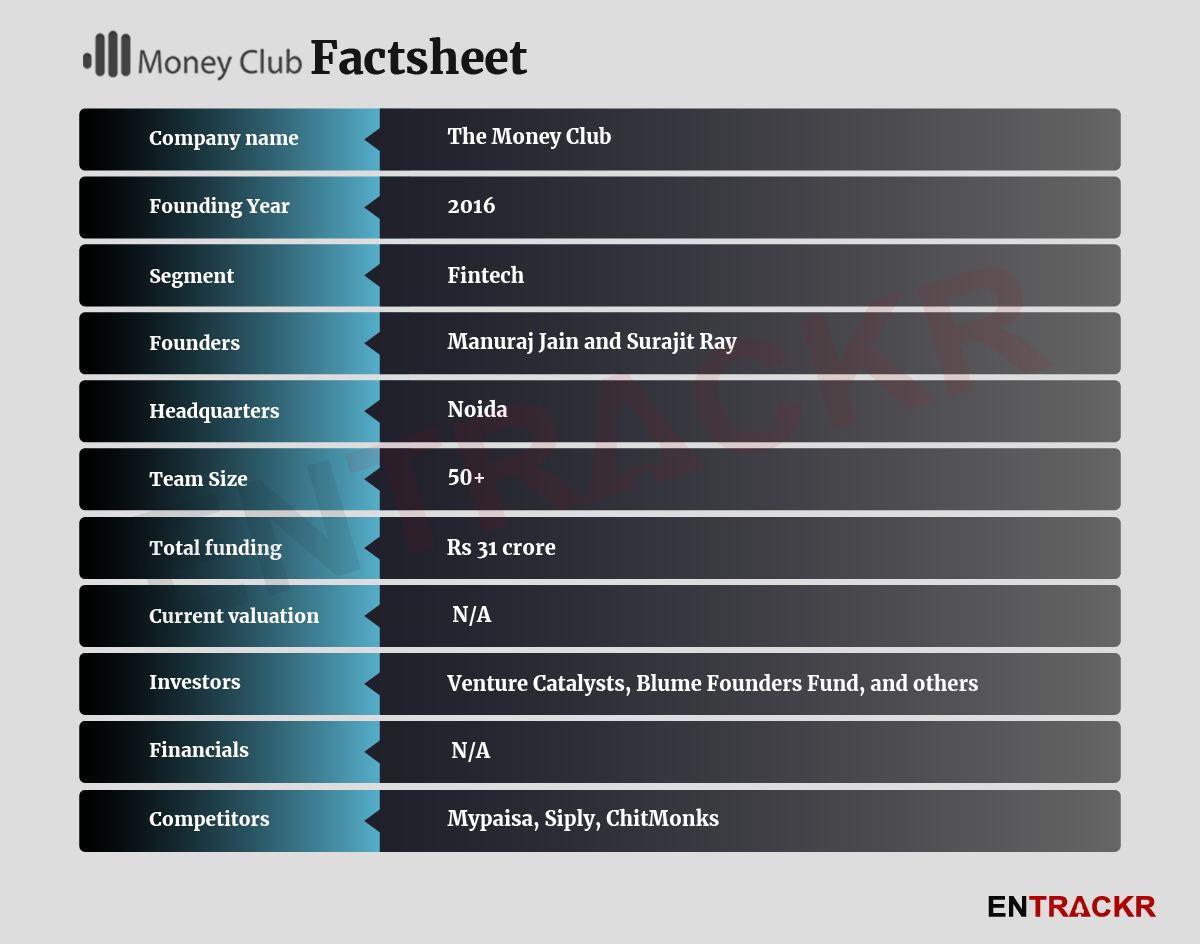Even as the access to credit has become much easier than before, there is still a large number of demography, especially in the lower income groups, who do not have the same privilege. Such lower income groups still rely on conventional methods of borrowing or savings, say lending from friends and family or group pooling of money.
Moneyclub, a Noida-based fintech startup, is taking a shot at addressing this problem with a platform that provides on-demand liquidity in contingencies via group savings. Similar to conventional chit funds, users can pool in their money on a monthly basis, also known as rotating savings and credit association (ROSCA). It also has another platform called Vrddi that exclusively focuses on the financial well-being of employees.
We spoke to Moneyclub founder Manuraj Jain to better understand the platform and what’s next. Here are the edited excerpts:
How did you come up with this idea?
My entry into this space and concept was, serendipitously, through my driver. The driver had asked me for advances to service contributions for his local “committee” (the local name for ROSCAs). The curiosity that was sparked that day was the starting point of building Moneyclub. I believed that the ROSCA
was an ingenious product, and a technological play could be a game changer. Moneyclub has ingeniously married the mechanics of ROSCAs to cutting edge AI technology to create a financial product for this market segment.
Please explain how the platform works.
Moneyclub has crafted an avant-garde gamified user journey that creates a habit forming experience for the user. The massive data generated by the high frequency low value transaction (~300 transactions in a year per user) feeds into Moneyclub’s underwriting model.
Moneyclub’s AI powered and data driven tech platform takes users from the pilot zone, through the screening zone and into the money-making zone while weeding out unscrupulous users. The clubs are as low as Rs 1000 in the pilot club and as high as 40,000 in the money-making zone. Across all zones, Moneyclub currently has a monthly pooling of nearly 10 Cr
The company currently has 700,000 users, registers over 125,000 transactions monthly, and more than 105 pools have been formed so far.
What are the regulations around such fintech platforms?
Moneyclub’s business model is governed by the RBI P2P guidelines. Every transaction on MoneyClub platform is a P2P transaction facilitated by a third party NBFC P2P pla]orm. With the normal functioning of a ROSCA in the front end, the winner of the round with the winning bid signs a borrower’s agreement with a partnered NBFC P2P platform.
All other members of the club who contribute money will sign an investors agreement with the NBFC P2P platform. The pooled amount will flow to the winner of the round from the other members of the club through escrow accounts. This is the back-end structure of MoneyClub transactions.
How do you plan to improve or diversify your platform in the future?
We’ll focus on three key areas starting with adding new partners and building more use cases. Then we plan to invest in technological advancement: smoother onboarding and KYC module, full circuit gamification without human intervention, and predictive engines, which are advanced AI data processing capabilities. Next is the geographical scaling of the business landscape to southern states of India.















